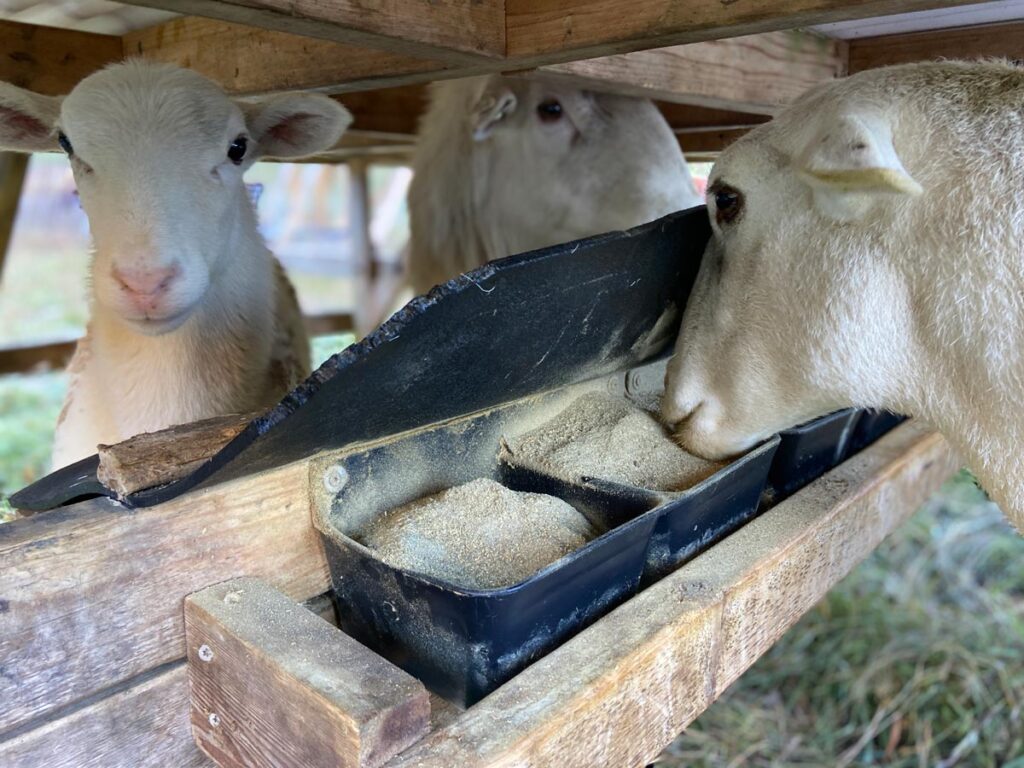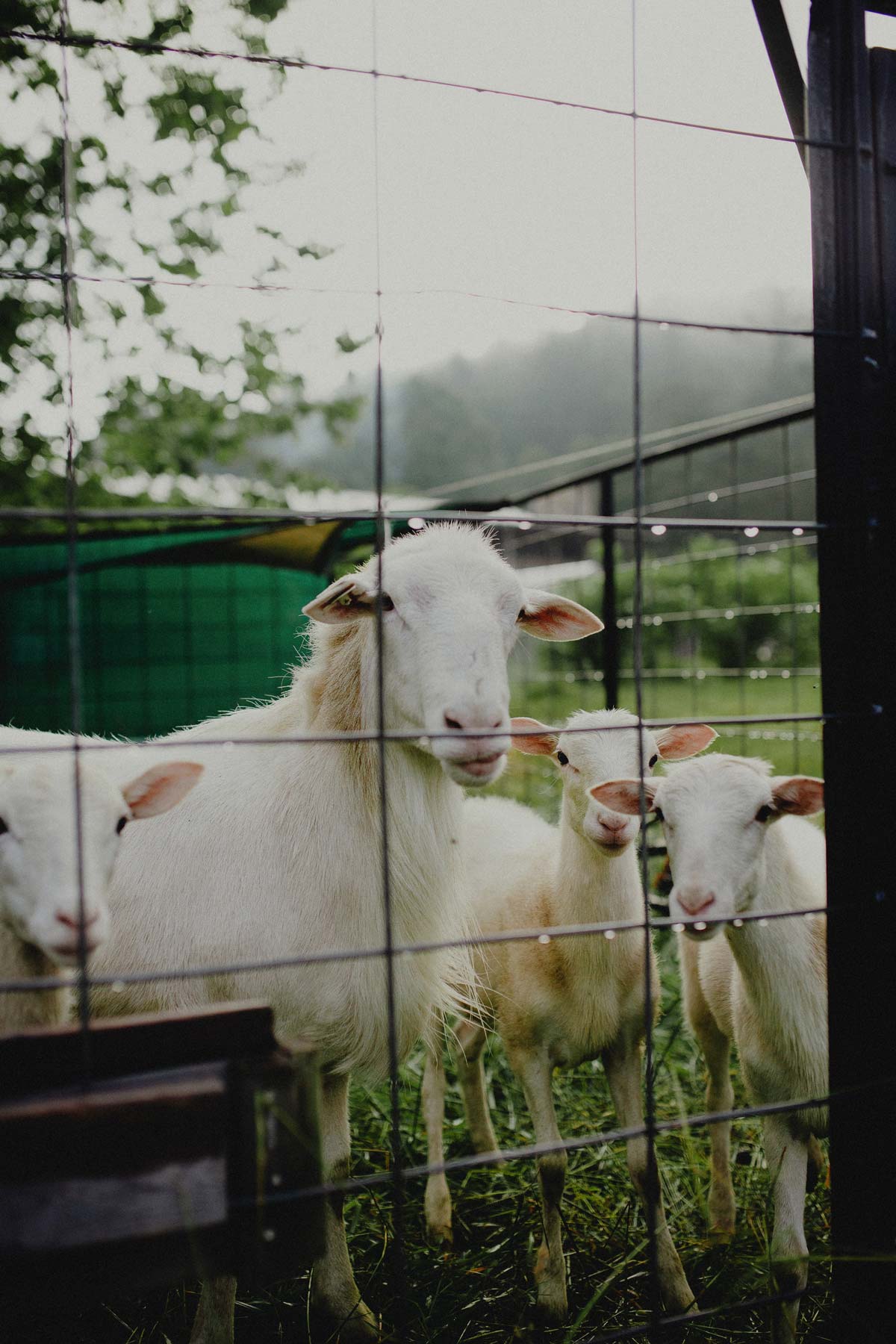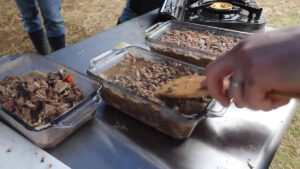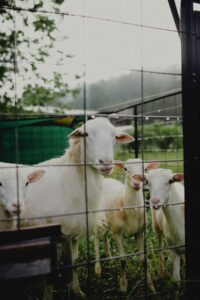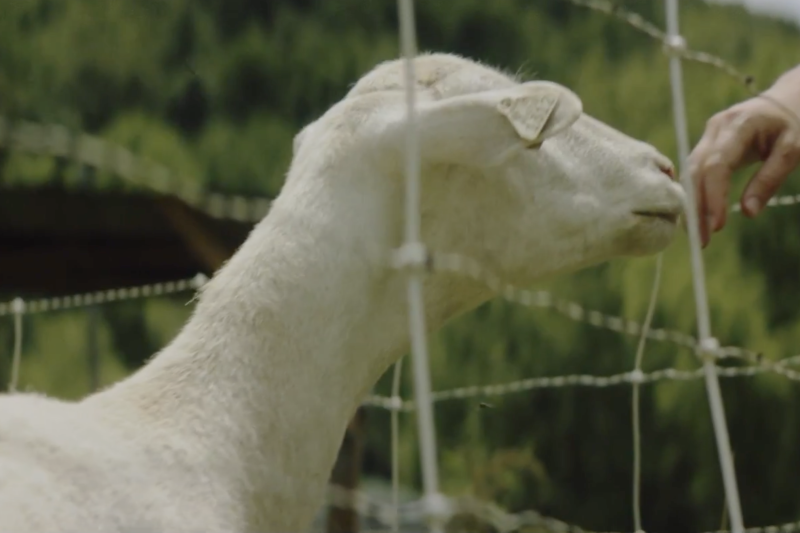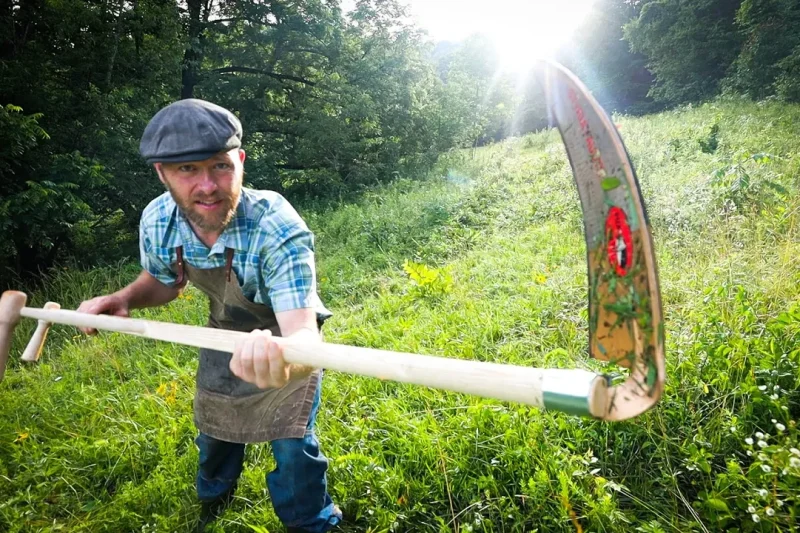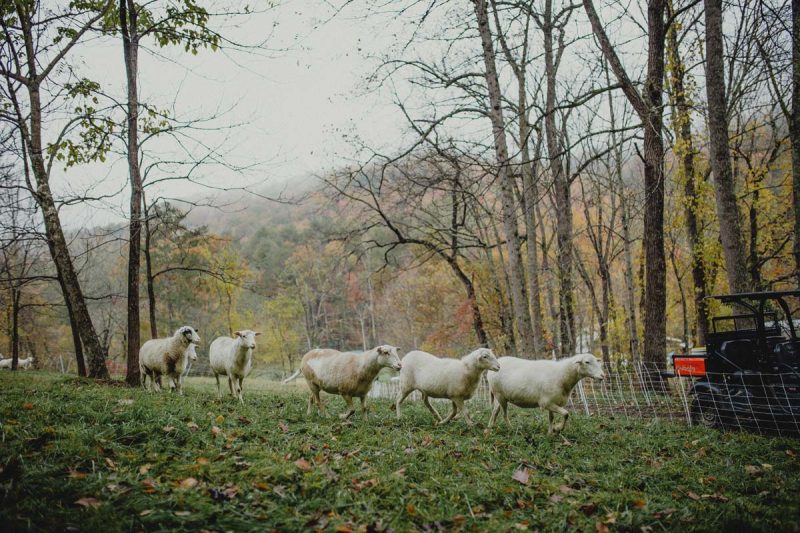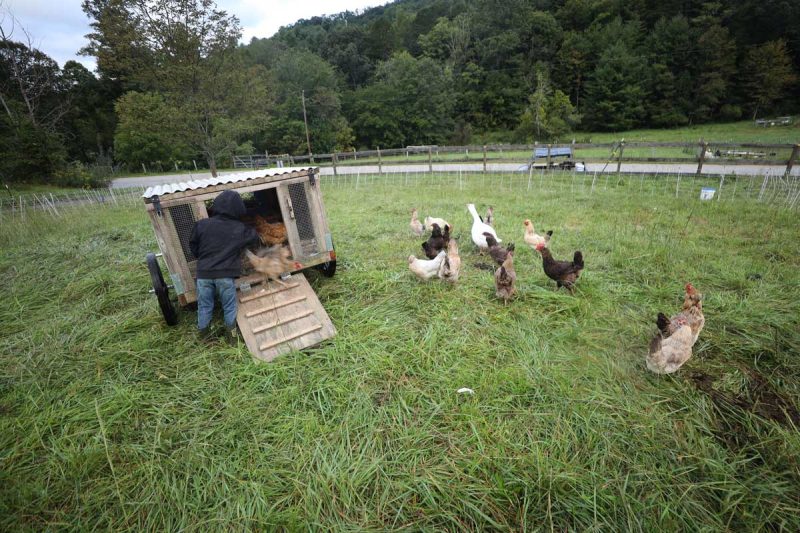By choosing the right breed and pasture together, you too can reduce your time and cost and increase your sheep’s and pasture’s health.
Greg Judy – Master Sheep Farmer
Greg Judy is a master sheep producer so passionate about healthy farms and healthy farmers that he has written two books, No Risk Ranching and Comeback Farms.
His grazing operation spans 16 farms (four owned and twelve leased), specializing in maximizing financial resources and working with the land to raise his livestock naturally.
Committed to sharing what he has learned, Greg welcomed me to his ranch to learn how his approach to regenerative farming works with no grain or deworming necessary.
I was so impressed with his epic sheep operation that I was inspired to bring home some of his sheep to add to our homestead.
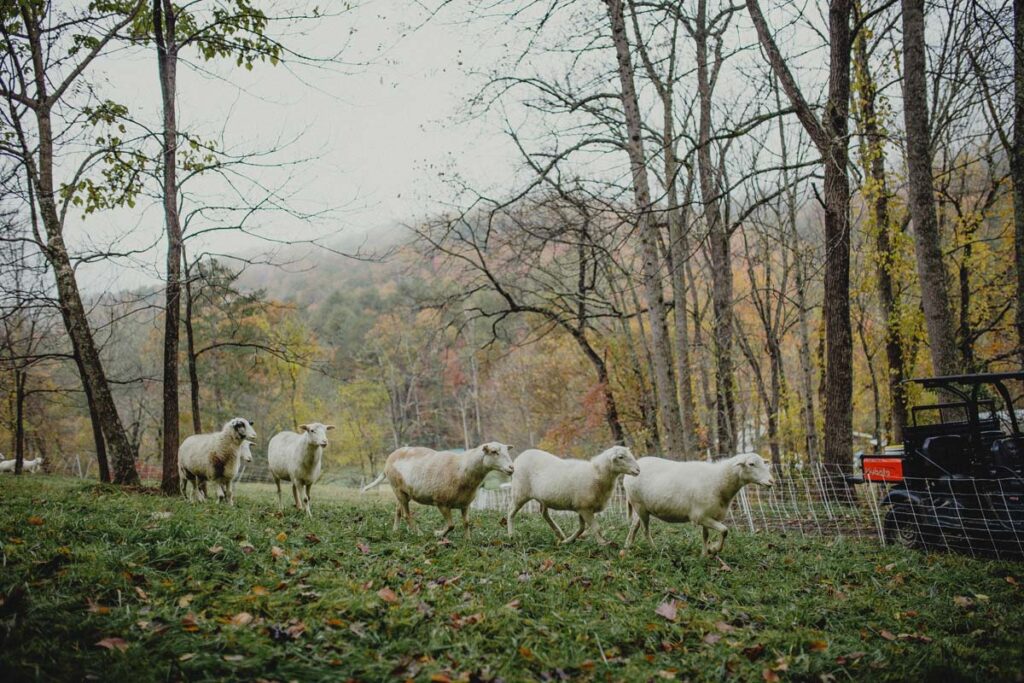
What Are St. Croix Sheep?
St. Croix sheep are a breed of sheep from the US Virgin Islands named for the island of St. Coix. Most St. Croix sheep are white but can be white with brown or black spots, solid tan, solid brown or solid black. Typically. St. Croix is easy to train and is comfortable around people and dogs.
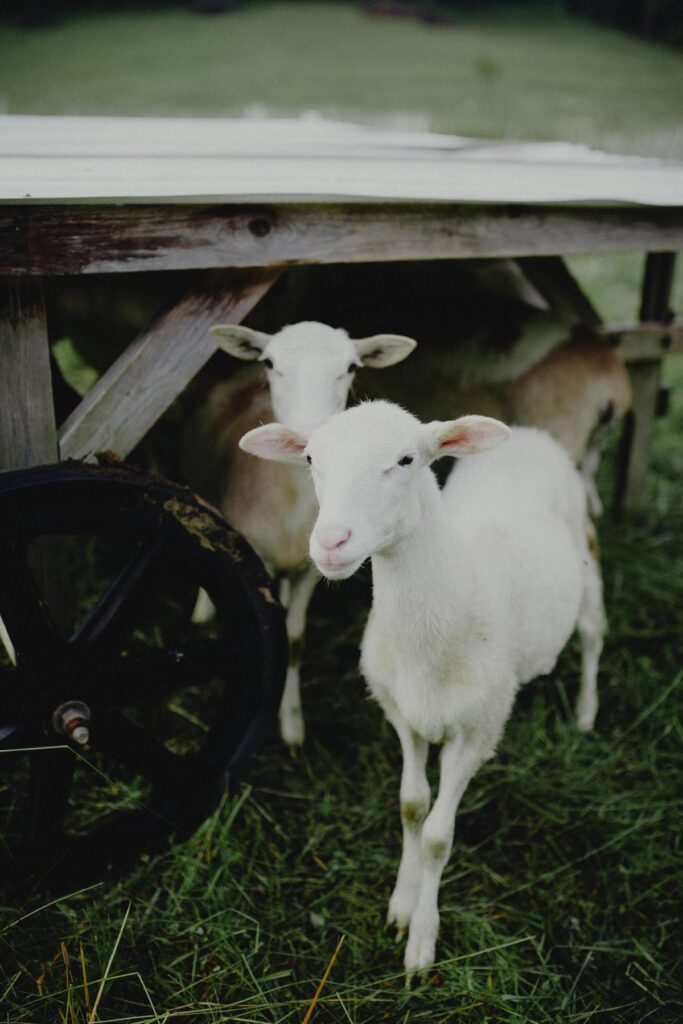
Why You Should Raise St. Croix Sheep
Besides being easy to manage, there are many reasons you should raise St. Croix sheep.
Resistant to Parasites
St. Croix sheep are known to resist parasites. Many studies have been done through manure parasite egg counts, proving that they rarely get parasites.
No Shearing
The St. Croix is suited to many climates, including the tropics and cold, extreme winters. They are not wool sheep, and the beauty of raising St. Croix is that they grow undercoats in the winter months and shed them by summertime with no need for you to shear them. They also don’t require docking of their tails.
Good Mothers
St Croix are very attentive mothers. Mothers are known to bond quickly with their young. They also have high lambing percentages, averaging 2.1 births per season. The ewes often have triplets and sometimes even quadruplets.
Resistant for Hoof Rot
In dry climates, the hooves of St. Croix will rarely need trimming. But even in damp conditions, they are resistant to hoof rot.
Polled Breed
Both the rams and the ewes don’t have horns.
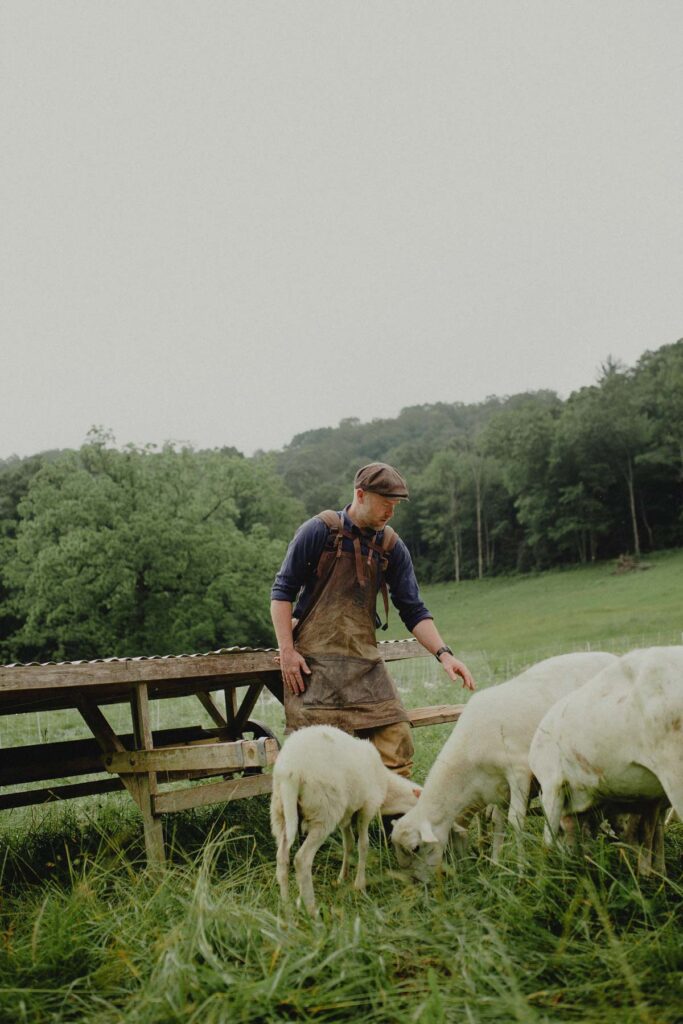
Good Grazers
St. Croix prefer weeds and have been used often in weed control programs. They are easy to graze because they will eat coarser food than other breeds of sheep.
Good Milkers
St. Croix ewes produce a good amount of milk high in butter fat. They are popular in some areas of the United States for cheese production.

Strong Flocking Instincts
St. Croix have a robust flocking character, making them popular in training sheepdogs. They learn their boundaries and quickly bond with their master.
Lean Meat
St. Croix produces lean, flavorful, and tender meat because they do not deposit fat within its muscles.
Temperature Tolerant
St. Croix can be found all over the United States, from the Pacific Northwest’s damp areas to Hawaii and hot desert terrains. They can tolerate both cold and heat well.
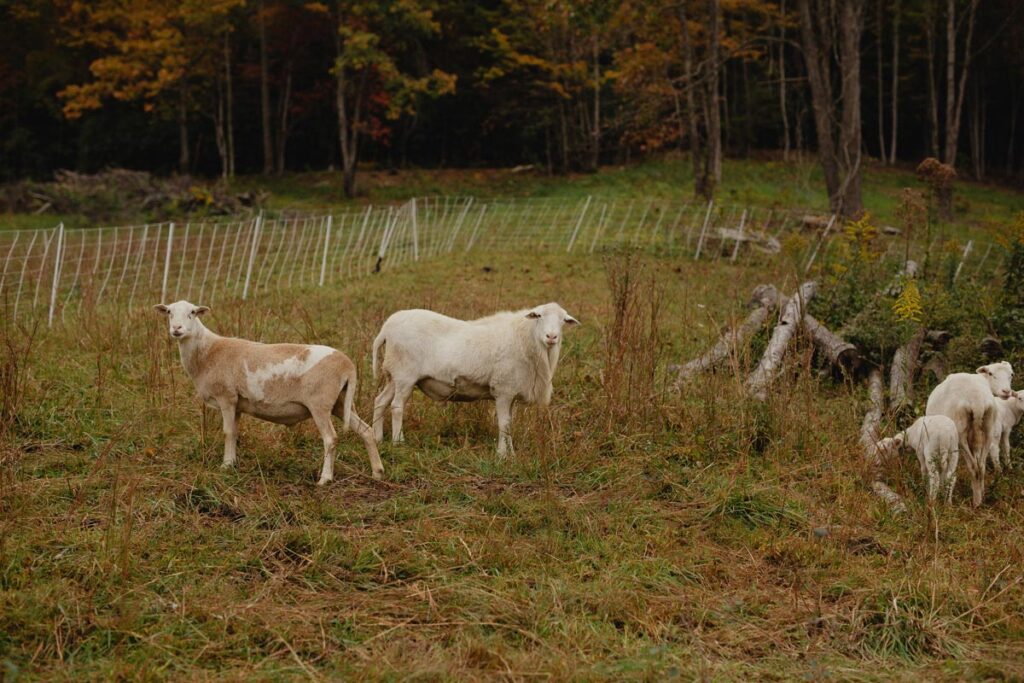
Raising Sheep Without Grain
When you feed sheep grain, all you’re doing is growing hoof and horn, so be prepared to get your trimmers out. Additionally, when you feed sheep grain, it marbles the meat. When you get marbling in mutton, the shelf life on it plummets.
If you put grass-fed mutton into the freezer, it will stay good for a year. Mutton fed on grain will go rancid in your freezer much faster. Grass-fed lamb is also much healthier for you.
Raising Sheep on Pasture Only
Can sheep survive on only grass? Yes, they sure can! Sheep can carry multiple lambs, nurse their babies and put on weight only by eating good pasture grass. Sheep are ruminants, and their digestive tracts perfectly adapt to eating grass.
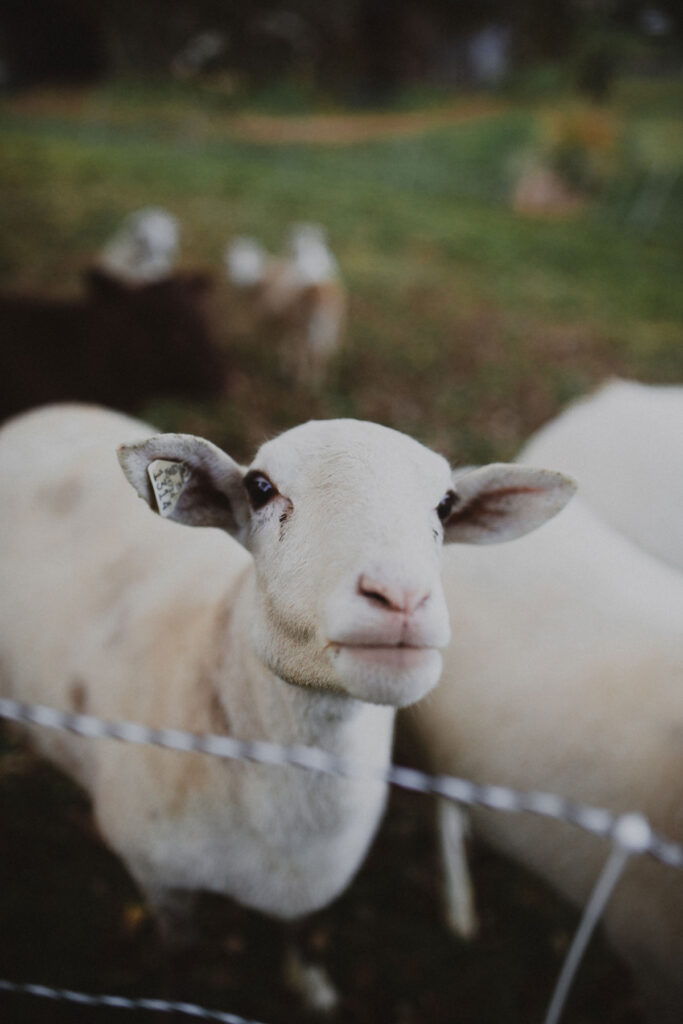
Rotational Grazing for Raising Sheep
Rotational grazing is moving sheep from pasture to pasture. This process has many benefits for your soil and also for your animals.
These benefits increase the health of your flock and help them to thrive. The best medicine you can give your sheep is a fresh pasture. The pasture needs eight weeks of sunshine and rests to recover and kill off the parasites.
Decrease in Parasites
Moving sheep frequently helps to control parasites. The closer to the ground that an animal grazes, the more chance they have of ingesting parasites. Sheep tend to feed closer to the ground than cows, so they tend to have more parasitic larvae.
Moving them when the pasture grass is still four inches tall or taller will prevent them from eating near the ground. The higher sheep eat in the canopy, the less they are exposed to parasites.
Improves Soil Health
Rotating sheep in different pastures increases the fertility of the soil. Let the sheep feed on a pasture for a short time, then move them. The urine and manure left behind will graze the pasture and promote new growth. The grass can grow again with all the nutrients provided.
The lower the sheep eat the grass to the ground, the longer it takes for the grass to grow back. The best medicine you can give your sheep is a fresh pasture. The pasture will need eight weeks of sunshine to recover and kill off any parasites left behind in the manure.
Good grazing management means good long periods of rest between grazings.
Improved Diet
Sheep, like humans, enjoy variety in their diet. Moving them from pasture to pasture will often provide them with different kinds of forage.
Natural Environment
Rotational grazing is suitable for sheep, depending on the condition of your pasture during different seasons. Keep sheep out of pastures that may become wet in the spring. Wet pastures are breeding grounds for parasites that can harm sheep.
